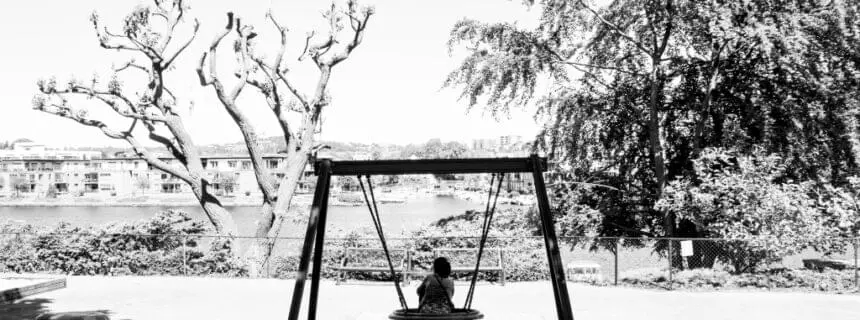Single mother, 28: «Singel I saw this link on Facebook, and I don’t really know if it’s right for me describe myself as poor. I’m 28 years old, and a single mother of a seven-year-old boy. Things are very hard for me, and they have been for a while.«
The single mum sent the this e-mail to the museum, she continues:
«I lost my job two years ago, and live with a chronic stomach disorder that makes it hard to work full time. My son’s school costs a great deal by itself. Not school itself, but things such as sponsoring children in foreign countries, collections for common expenses, friend groups and things like that. It feels bad that I can’t afford those things, as well as ski days, baking cakes for parents’ meetings and, not least, all the birthdays. It’s hard enough for me to put a proper dinner on the table and to buy clothes. These days, it really feels as though the rich are getting richer and the poor are getting poorer. The Norwegian systems, NAV for example, works incredibly badly and it’s so hard to get advice and assistance there. I don’t know if my words can help others in any way. But it sure isn’t easy to be among the ‘less fortunate’ in Norway!»
In the interviev she said:
I got in touch because the advertisement actually used the word ‘poor’. I like this word; it’s provocative and tells it like it is. It’s something I think and talk a lot about. It was a relief to write the e-mail to the museum. It got me thinking about so many things that day.
So school really gets on my nerves with all its financial pressures. School ought to be free from that kind of pressure.
School should be free in Norway, but it definitely ISN’T. Already in first grade you’re expected to do voluntary work, to bake cakes for the parents’ meeting, and get flowers for the teacher. There are so many things like that connected with it. It’s hard to raise all the cash they require, and it ends up being a lot of money. The pupils get a list to take home where they should fill in all the voluntary work they do. Some come back with a full list, while others have only completed a few of the tasks, because they don’t know so many they can work for. I’m surprised by all the pressure at school. Take the lunch pack, for example: the other day, the pupils were asked to bring fruit for the whole class. So school really gets on my nerves with all its financial pressures. School ought to be free from that kind of pressure, but it actually takes a lot of courage to tell them what you think about it. For example, I can’t afford to go to the parents’ meeting, because I would have to hire a babysitter. I’ve told them about that during our contact meetings.
Many things cost money, for example birthdays. I always arrange birthday parties at home, and I would even if I’d had more money. My apartment is tiny, but I decorate all the rooms with a common theme for the birthday party. But when the parents arrive to fetch their children I think to myself ‘please don’t enter… I’ve had a cup of coffee in your magnificent house.’
My son started playing football, and it was insanely expensive, so I was happy when he told me he wanted to quit.
My son started playing football, and it was insanely expensive, so I was happy when he told me he wanted to quit. I mean, I shouldn’t be happy that he wanted to quit, but there you go, it was so expensive. I was just told that children with parents in my situation can obtain support for one recreational activity per week. So there are indeed support programs, but you find about them by coincidence.
I started working while at school when I was fifteen, and I’ve always liked working. But I lost my job two years ago, when they closed the business. After that, I haven’t had any help to get started again. I’ve applied for many jobs, but my physician doesn’t want to me to work because of my illness. I enjoyed my work very much and I could have continued there if they hadn’t shut it down. I’ve worked three years as an on-call shop assistant in a toy store.
I have chosen the place where I live carefully. I live in a family-oriented area where people don’t own much, but are very helpful. You can drive around in an old car and it won’t matter. In other places where I’ve lived there have been a lot more pressure on wearing the latest fashion brands. I never want to live anywhere else. I’m scared to death that my son will grow up in a society with all the inequalities that I see around me now. I feel that there’s a growing gap between those who have and those who don’t.
We were lucky to get a free year-pass for the zoo. We spend a lot of time there, and take sandwiches with us so that we can stay a long time. So many things there are free of charge, and it’s a place where it looks cool to take out your lunch pack. In my own family, we would often go on hikes. If my family had travelled a lot, I don’t think I would have had a very good time today. Though it’s important not to let the pressure get to you, it’s not always easy. I can see how the pressure has already started getting to my son. He got a simple cellphone for Christmas, and he was so happy about it, but when he shows it to other pupils in second grade it turns out they have an iPhone 6.
I take care to talk to my son about these things. I want him to know as much as possible about economy. He has to learn to save money, and that he needs to do a bit of work to earn it.
I know some people who have more money than they can use, but who don’t brag about it. In that family, the parents teach their children to be grateful and to share what they have. They gave me six bags of clothes, which was like four birthdays and four Christmas Eves all at once. Now I haven’t had to buy clothes for my son for a whole year, and I pass on what we can’t use to others. I think it’s a wonderful thing to get second hand articles and then be able to share them with others.
There was a period when I had very little. I had a package of crisp bread that I divided up for myself into my morning and evening meals, and I made dinner for my son only. I told him I was on a ‘mummy diet.’ I had been given unemployment benefits, but then I lost them. Then I went to NAV to ask if there was something I could apply for. Yes, I could apply for emergency assistance, but that could take a month. It was then that I lived on crisp bread to make the food last as long as possible. After a month I had run out, and was feeling dizzy and sick. My friend went with me to NAV, but the case worker told me there’s was nothing they could do about it. I went back two days later and came to the same case worker, and he still couldn’t help me. I burst out crying by the reception desk, and asked if they could get someone else to help me. In the end, I got a requisition of 400 kroner. That was such a relief! And finally, after a very long wait, I finally got social assistance.
Now I’ve been assigned to a social worker. She helps me write applications, and one evening she came to visit me. I’ve been seeing her for two months. That has been a turning point, and now I can see some light at the end of the tunnel. She has helped me sort out old debt, and I’ve been able to tear up some old bills. That kind of assistance should be compulsory. Even though I’m still in the same situation, I’m able to look at it more positively now. And it’s nice that my friend who used to help me can now go back to only being my friend.
I think things can go better for you if you really try hard to focus on them. If you do, you won’t worry so much. I feel comfort when I hear about others who struggle with the same things as I do. I’m not happy that they’re struggling, mind you; it’s just good to know that there are more of us. They also have kids, and it’s good for kids not to feel that they’re the only ones who can’t afford what everyone else has. It’s difficult to talk about poverty, but it’s important. It’s important for us to scratch a bit on people’s surfaces. If they start telling their stories things might start to come into the open. It is my hope that such openness can help others.
Do you want to read more interviews? www.vestagdermuseet.no/fattigdom

